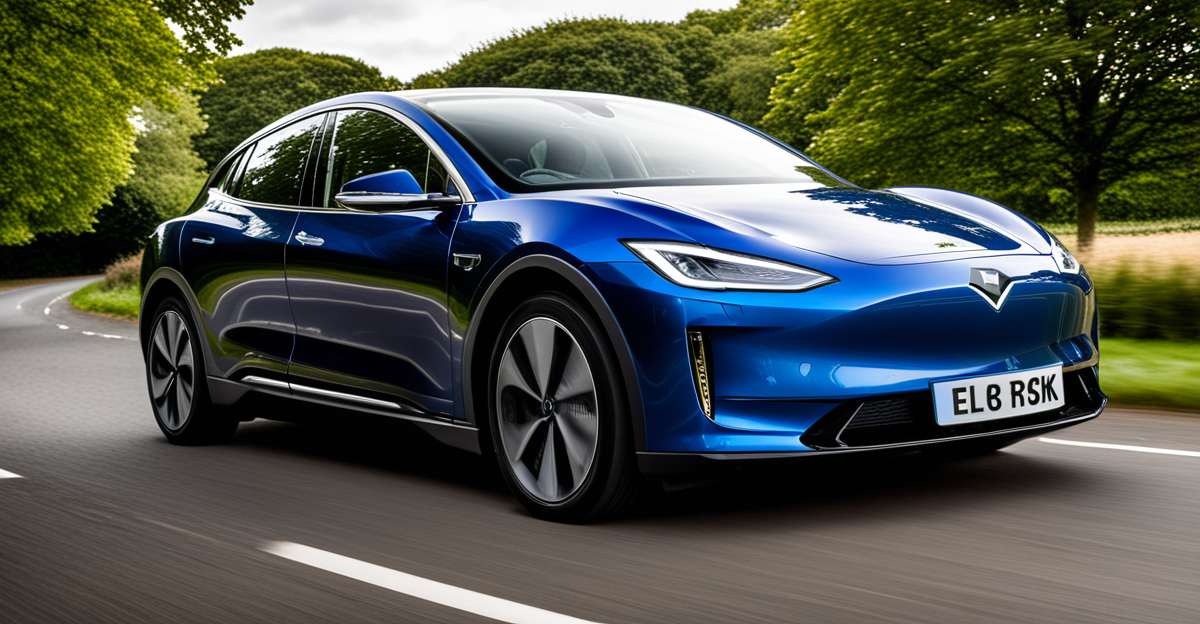Key Factors Driving the Popularity of Electric Vehicles in the UK
The surge in electric vehicles UK popularity can be attributed to several intertwined factors. Firstly, government incentives and policies supporting EV adoption have played a crucial role. Generous grants and tax reductions have lowered upfront costs, making EVs more accessible to a wider audience. Moreover, emission targets and urban low-emission zones encourage consumers to switch to cleaner vehicles.
Environmental awareness is another powerful EV adoption driver. Increasing concerns about air quality and climate change motivate UK consumers to choose electric vehicles over traditional petrol or diesel cars. This shift is supported by heightened media coverage and public campaigns emphasizing sustainability.
Also to see : What impact do UK government policies have on the automotive industry?
Advancements in electric vehicle technology and performance also fuel the rising interest. Improved battery life extends vehicle range, addressing one of the main hesitations about electric vehicles. Simultaneously, technology progress has lowered production costs, allowing prices to become more competitive without sacrificing quality. These improvements enhance the overall ownership experience, making EVs a practical and appealing choice in the UK automotive market.
Impact of Government Incentives and Regulatory Measures
Government incentives for EVs in the UK have significantly accelerated electric vehicles UK adoption. The UK government offers various financial supports, including EV grants UK that reduce the purchase price by thousands of pounds. These incentives make EVs more affordable and appealing, directly boosting sales growth.
Topic to read : What Are the Future Technological Advancements Shaping the UK Automotive Industry?
In addition to grants, UK EV policies include tax exemptions and reductions for electric vehicle owners, lowering the total cost of ownership. For example, road tax discounts and lower company car tax rates make choosing EVs financially advantageous. This suite of policies creates a favorable environment for EV adoption drivers.
Emission targets and regulatory frameworks also play a vital role. Low-emission zones in major cities limit access for petrol and diesel vehicles, encouraging consumers to transition to electric models. These regulations are part of broader efforts to meet climate goals, serving as external pressures to shift consumer behaviour and increase EV sales in the UK automotive market.
Together, these government incentives and policies not only reduce upfront and ongoing costs but also reinforce societal moves towards sustainable transport. This combination effectively propels the electric vehicle market forward across the UK.
Growth of Charging Infrastructure Across the UK
The expansion of EV charging infrastructure UK is a critical EV adoption driver within the UK automotive market. The availability of public charging stations has increased significantly in recent years, addressing a key concern: range anxiety. More than ever, consumers can find public charging stations UK in urban centres, shopping areas, and along major highways, boosting confidence in electric vehicles UK as a reliable mode of transport.
Beyond cities, efforts to improve charging accessibility in rural and suburban locations have intensified. Local councils and private partners are investing in expanding networks with fast chargers and destination points, ensuring users experience consistent support regardless of location. This inclusivity is vital to encourage broader adoption across geographic demographics.
Such improvements directly impact consumer trust by mitigating fears of inconvenient charging options. Enhancing EV charging infrastructure UK reduces one of the major practical barriers for new buyers. As infrastructure grows, the UK automotive market becomes increasingly favourable for EV ownership, reinforcing the trend toward cleaner transportation choices. This nationwide push underlines the symbiotic relationship between infrastructure development and rising electric vehicles UK popularity.
Advancements in Electric Vehicle Technology
Recent advancements in EV battery technology have dramatically improved the electric vehicle range, addressing a major concern among UK consumers. Modern batteries now offer longer driving distances on a single charge, often exceeding 200 miles, which reduces range anxiety and increases the practicality of electric vehicles UK owners experience daily.
These technological breakthroughs also contribute to EV cost reductions. More efficient battery manufacturing processes and economies of scale have lowered production costs. This, in turn, allows manufacturers to offer competitively priced EVs within the UK automotive market. As a result, electric vehicles are becoming more accessible to a broader demographic.
In addition to range and price improvements, enhanced performance features such as faster acceleration and regenerative braking appeal to consumers seeking a quality driving experience. Battery reliability and charging speed continue to improve, further boosting consumer confidence. These combined factors form crucial EV adoption drivers that are reshaping buyer preferences within the UK automotive market, making electric vehicles a compelling choice for many.
Advancements in Electric Vehicle Technology
Continuous improvements in electric vehicle technology significantly influence the rise of electric vehicles UK adoption. One critical advancement lies in EV battery technology, where increased energy density and faster charging capabilities extend the electric vehicle range substantially. These technical strides address range anxiety, a common barrier to EV adoption drivers by allowing drivers to travel longer between charges with greater confidence.
Simultaneously, substantial reductions in production costs have enabled price decreases without sacrificing quality. Innovations in manufacturing processes and materials have contributed to these EV cost reductions, making electric vehicles more affordable within the UK automotive market. Lower prices attract a broader audience and increase competitive viability against traditional vehicles.
Moreover, upgraded vehicle features such as enhanced powertrains, regenerative braking systems, and sophisticated driver-assistance technologies elevate the overall performance and user experience. These enhancements make electric cars practical alternatives, not just environmentally responsible choices.
In summary, the blend of longer ranges, improved affordability, and enhanced performance firmly positions technological progress as a primary EV adoption driver in the UK. The ongoing evolution of electric vehicle technology continues to inspire confidence and stimulates demand in the UK automotive market.
Changing Consumer Attitudes Toward Electric Vehicles
Shifting EV consumer attitudes UK strongly influence EV adoption trends across the UK automotive market. Increasing awareness of climate change and sustainability encourages many consumers to choose electric vehicles UK, viewing them as a responsible alternative to traditional petrol or diesel cars. This environmentally conscious mindset is now a major EV adoption driver.
Consumers have also become more confident in the reliability and practicality of electric vehicles. Early concerns around battery life and charging convenience have diminished due to advancements in EV battery technology and the growth of an accessible charging network. These developments improve public perception, making EVs a viable option for daily commuting and longer trips.
High-profile electric vehicle launches and targeted advertising campaigns significantly impact consumer choices. Leading manufacturers showcase models that combine style, performance, and affordability, appealing to a broad audience. This visibility helps normalize EV ownership and stimulates demand in the UK automotive market.
As attitudes evolve, more buyers prioritize functionality alongside environmental benefits. This transformation in mindset fuels ongoing growth in electric vehicles UK sales and supports the broader transition to sustainable transportation across the country.
Key Factors Driving the Popularity of Electric Vehicles in the UK
The rise of electric vehicles UK is propelled by multiple critical EV adoption drivers shaping the UK automotive market. Foremost among these are sustained government incentives and policies supporting EV adoption. These include financial incentives that reduce purchase costs, coupled with regulations that encourage cleaner vehicle use, creating a stable framework for consumer transition.
Environmental concerns strongly influence buyers today. Heightened awareness of air pollution and climate impacts motivates many UK drivers to choose EVs. This shift reflects a broader societal trend prioritizing sustainability and responsible transport choices, reinforcing the appeal of electric vehicles.
Technological improvements form another key driver. Advances in electric vehicle technology and performance have yielded better battery efficiency, longer electric vehicle range, and more competitive pricing. Enhanced drivability and reliability assuage previous doubts about EV practicality, making them increasingly attractive within the UK automotive market.
Together, these factors interact synergistically, propelling the ongoing growth of electric vehicles in the UK. Understanding this interplay is essential to appreciating the current momentum in EV adoption.
Key Factors Driving the Popularity of Electric Vehicles in the UK
The popularity of electric vehicles UK stems from a combination of influential EV adoption drivers shaping the UK automotive market. Foremost, robust government incentives and policies have lowered financial barriers, encouraging more consumers to purchase EVs. These supports include grants that reduce upfront costs and tax benefits that make ownership more economical, directly impacting buyer decisions.
Environmental concerns also play a crucial role. Heightened public awareness about climate change and air pollution drives many UK consumers to prefer electric vehicles as a clean alternative. This shift reflects a broader societal emphasis on sustainability, which reinforces positive attitudes towards EV ownership.
Technological improvements further amplify appeal. Advances in electric vehicle technology have enhanced battery life and driving range, overcoming previous doubts about EV practicality. Simultaneously, reductions in manufacturing costs allow more competitively priced models in the UK automotive market, attracting a wider demographic. Together, these factors create a favorable environment where EV adoption drivers stimulate growth, making electric vehicles an increasingly popular choice across the UK.








